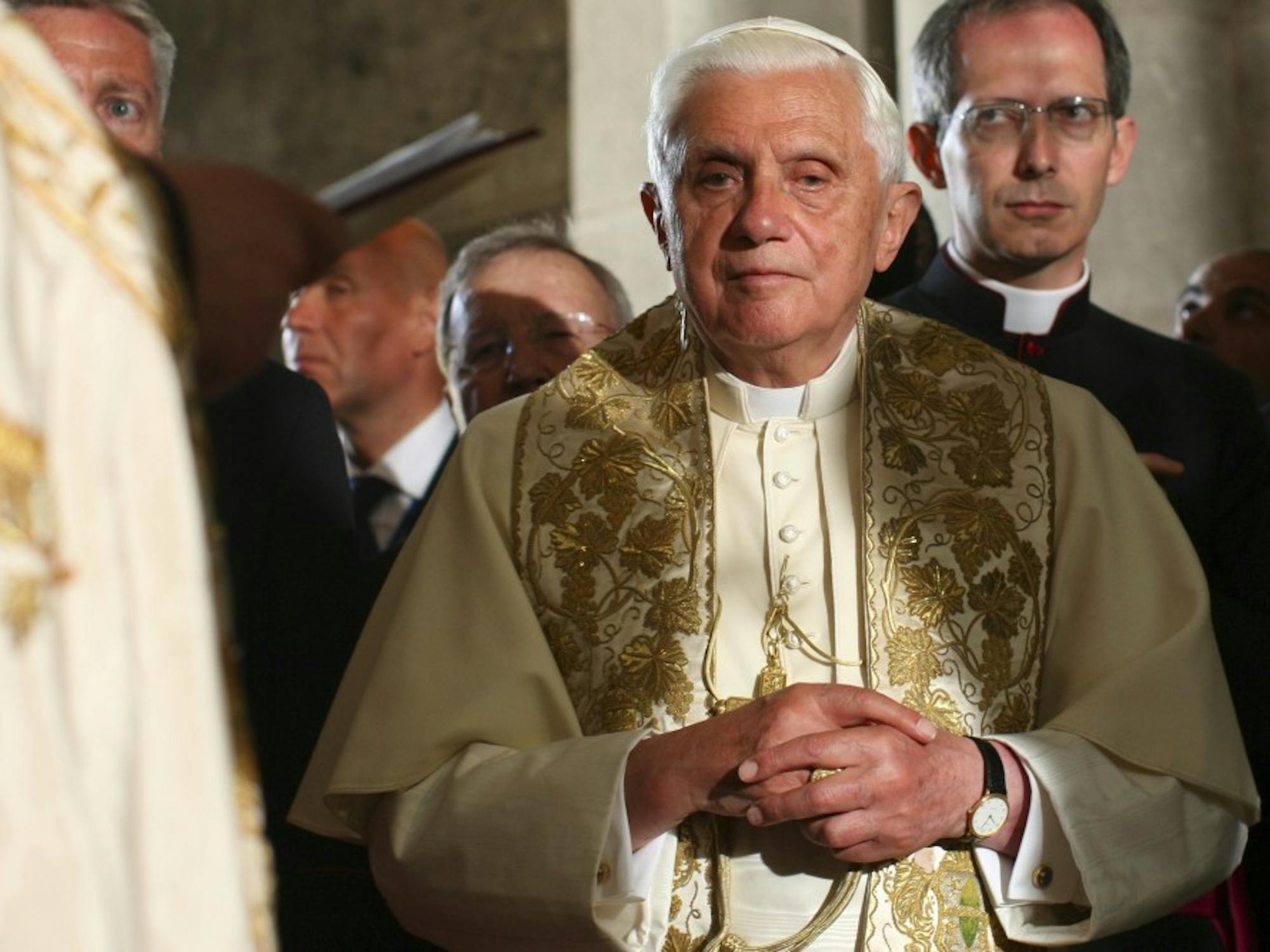The much esteemed European tolerance was on display before and during Pope Benedict XVI’s trip to the United Kingdom.
In April, a memo leaked from England’s Foreign Office suggesting the Pope should open up an abortion clinic on his trip. Celebrity atheists have called for the arrest of the “Leering old villain in a frock,” as Richard Dawkins called him and protesters shouted and displayed obscenities, with one banner showing the Pope as a flaming skeleton holding a swastika staff.
Unfortunately, vitriolic attacks against the office of the papacy and the spiritual leader himself do not prompt the outrage burning the Quran does these days.
During his papacy, Benedict has been consistently misrepresented and the object of many caricatures.
In the recent revelations of past sexual abuse and clerical cover-ups, righteous anger arose over the scope of the betrayal. Indeed, the demand for justice is good and every effort should be made to fulfill it. Justice, however, is not attained by misappropriation of blame.
Reports trying to tenuously implicate Ratzinger as a conspirator in abuse have been contradicted by those with actual expertise. John L. Allen, the respected writer for the National Catholic Reporter and CNN correspondent, wrote Benedict, “More than any other high-ranking official, saw the gravity of the situation and tried to steer a new course.”
Jason Berry, who has written extensively on sexual abuse by Catholic clergy, echoed Allen’s assessment writing, “Ironically, for all the bad press he is getting, Benedict has done more to confront the abuse crisis than anyone else in the Vatican … Ratzinger’s belief in absolute moral truth drove him to confront the pedophilia scandals when just about every other Vatican leader recoiled from it.”
But the abuse crisis is just one of many areas the Holy Father’s critics have spoken against him. One tends to think even if well-known atheist Christopher Hitchens were to have all his objections met to his satisfaction, he’d find 10 more reasons to lament that cancer will likely deprive him the opportunity of reading Benedict’s obituary, an expressed regret of Hitchens.
That’s sort of the caveat about irrational prejudices. And yes, most of the animosity aimed at Benedict is a consequence of prejudice. Perhaps, when all was completed, that’s why Damian Thompson of the Telegraph wrote in his blog the papal visit was an enormous success because, “Pope Benedict is no longer a stranger to the British people.”
In actuality, this soft-spoken scholarly pope the British people saw reflects the words Rabbi Jacob Neusner used in a Huffington Post article about Benedict, “The Holy Father, as the Catholics call him, is a lovely, loving man—the world benefits from his truth-telling.”
The world certainly does benefit. The man who coined the phrase “The dictatorship of relativism” now holds the position most tasked with resisting it: the Supreme Pontiff, leader of the Universal Church, successor of St. Peter.
I write with clarity, having come a long way since holding zealous anti-Catholic views during Ratzinger’s elevation in 2005: Long live Benedict XVI!










